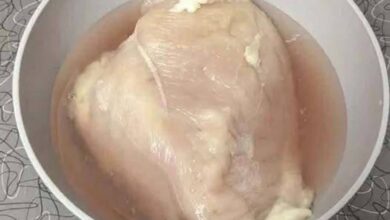Clove Tea & Oral Remedy


🌿 Clove Tea & Oral Remedy Recipe
🧾 Introduction
Cloves are aromatic flower buds obtained from the clove tree (Syzygium aromaticum), native to Indonesia’s Maluku Islands. For centuries, they’ve been used in culinary dishes, traditional medicine, and even spiritual practices.
This recipe shows how to prepare clove tea — a soothing, warming drink — and how to use cloves for oral health, especially for toothache relief and fresh breath.
🧂 Ingredients
For Clove Tea:
- 1 tablespoon of whole cloves
- 2 cups of water
- 1 teaspoon of honey (optional)
- 1 slice of lemon (optional)
For Oral Remedy:
- 2–3 whole cloves (to chew or place near the aching tooth)
- 1 teaspoon clove powder (optional, for mouth rinse or paste)
- 1 teaspoon coconut oil (optional, for oil pulling)
🥣 Instructions
Clove Tea Preparation
- Boil the water: Bring 2 cups of water to a boil in a pot.
- Add cloves: Drop in 1 tablespoon of whole cloves and let them simmer for 5–10 minutes.
- Strain and serve: Strain the tea into a cup.
- Add honey and lemon: Stir in honey or lemon for added flavor and health benefits.
- Enjoy warm: Sip slowly and feel the soothing effect.
Clove Oral Remedy
- For toothache:
- Gently chew on 2–3 whole cloves near the aching tooth for 5–10 minutes.
- Alternatively, apply a small amount of clove oil or paste (clove powder + coconut oil) directly to the area.
- For fresh breath:
- Chew 1–2 cloves after meals.
- Or rinse your mouth with clove tea once cooled.
🧑🍳 Methods
- Boiling method: Ideal for extracting the clove’s oil and nutrients into tea.
- Chewing method: Releases natural clove oil directly into the mouth, numbing pain and killing bacteria.
- Oil-pulling method: Mix clove oil or powder with coconut oil to detoxify and freshen the mouth.
🏺 History
Cloves have been treasured since ancient times. They were once so valuable that wars were fought over them during the spice trade era. Ancient Chinese medicine and Ayurvedic traditions have used cloves for over 2,000 years to treat digestive problems, colds, and dental pain.
💪 Benefits
- Relieves toothache: Eugenol in cloves acts as a natural anesthetic.
- Boosts immunity: Clove tea strengthens the immune system.
- Improves digestion: Stimulates enzyme secretion.
- Fights infection: Antibacterial and antifungal properties.
- Enhances respiratory health: Relieves cough, sore throat, and cold symptoms.
- Freshens breath: Kills oral bacteria and neutralizes bad odors.
- Improves blood circulation: Contains antioxidants and vitamins.
🧬 Formation (How It Works)
The main active compound, Eugenol, is responsible for the strong aroma and medicinal properties. It numbs pain, reduces inflammation, and kills bacteria — making cloves a powerful natural healer for mouth and body.
🍽 Nutrition (per cup of clove tea)
- Calories: ~20 kcal
- Carbohydrates: 4g
- Protein: 0.2g
- Fat: 0.1g
- Fiber: 1g
- Vitamin C, E, K, and manganese: Small but beneficial amounts
❤️ Lovers of Cloves
Clove lovers are often those who enjoy strong, warm, spicy flavors. Herbal tea enthusiasts, Ayurvedic practitioners, and natural remedy users all cherish cloves for their healing warmth and distinctive aroma.
🏁 Conclusion
Clove tea and oral remedies are timeless natural treatments that blend health with comfort. Whether you’re sipping clove tea for relaxation or chewing cloves to relieve tooth pain, this spice brings warmth and healing to your life.
💞 Lovers’ Note
For those who love natural remedies, cloves are more than just a spice — they’re a symbol of wellness, care, and comfort. Share a cup of clove tea with someone you love, and enjoy its soothing warmth together.



